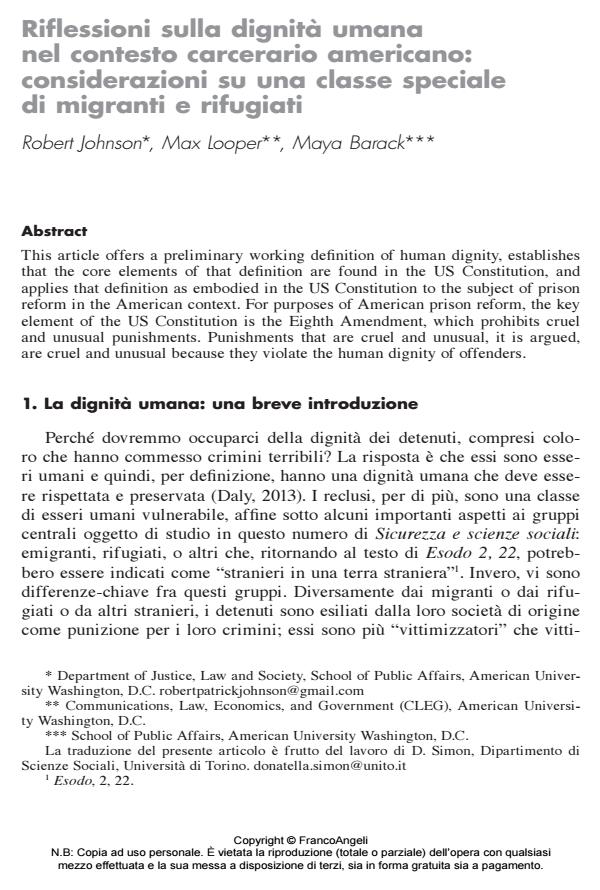Riflessioni sulla dignità umana nel contesto carcerario americano: considerazioni su una classe speciale di migranti e rifugiati
Titolo Rivista SICUREZZA E SCIENZE SOCIALI
Autori/Curatori Robert Johnson, Max Looper, Maya Barack
Anno di pubblicazione 2013 Fascicolo 2013/1
Lingua Italiano Numero pagine 10 P. 173-182 Dimensione file 232 KB
DOI 10.3280/SISS2013-001014
Il DOI è il codice a barre della proprietà intellettuale: per saperne di più
clicca qui
Qui sotto puoi vedere in anteprima la prima pagina di questo articolo.
Se questo articolo ti interessa, lo puoi acquistare (e scaricare in formato pdf) seguendo le facili indicazioni per acquistare il download credit. Acquista Download Credits per scaricare questo Articolo in formato PDF

FrancoAngeli è membro della Publishers International Linking Association, Inc (PILA), associazione indipendente e non profit per facilitare (attraverso i servizi tecnologici implementati da CrossRef.org) l’accesso degli studiosi ai contenuti digitali nelle pubblicazioni professionali e scientifiche.
The article deals with the migration phenomenon in the world after the terroristic attack of 9/11: globalization has changed the idea of immigration, bringing a renewed definition of borders and a new concept of security for migrants. It analyses the peculiar situation of women, the very vulnerable subject in those processes. In this perspective, the hardening of migration policies (more restricted standards and actions) could origine serious obstacles to ‘Securitizing’ migration, making the journey of migrants more dangerous, perilous, costly and open to exploitation and victimization.
Robert Johnson, Max Looper, Maya Barack, Riflessioni sulla dignità umana nel contesto carcerario americano: considerazioni su una classe speciale di migranti e rifugiati in "SICUREZZA E SCIENZE SOCIALI" 1/2013, pp 173-182, DOI: 10.3280/SISS2013-001014